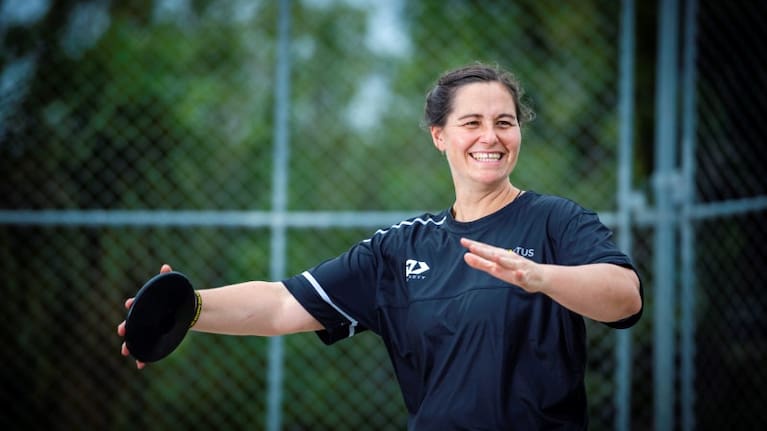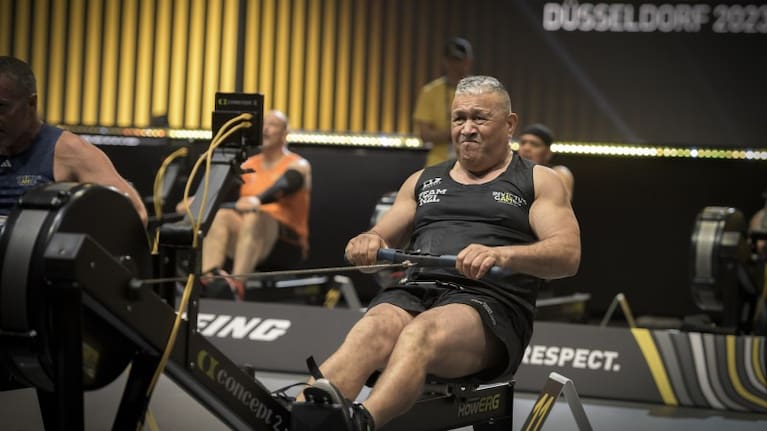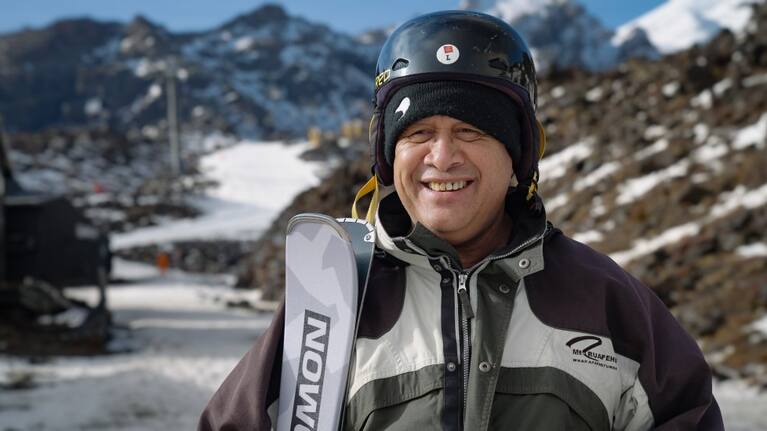The seventh Invictus Games began this weekend in Vancouver-Whistler with New Zealand one of 23 nations competing. While there are medals at the event, those competing win much more than that. 1News sport reporter Brodyn Knuckey caught up with members of the Kiwi team before their departure.
With one last blowout scheduled in hot and humid conditions at Auckland Base in Whenuapai before heading to the sub-zero temperatures of Vancouver, it’s not hard to imagine what a training session for a global multi-sport competition would look like.
But the 19 Kiwis I saw giving it their all was still more than I could imagine.
The Invictus Games is well known thanks to its founder Prince Harry, but it’s more than just a royal event – it’s a chance for ill, wounded and injured military service personnel to take another step in their individual journeys with others who know exactly what they’re going through.
"It's such a community when we're all there,” co-captain Flight Sergeant Stacey Adam told 1News.
“We've all obviously experienced something really significant in our life and it's not something you want to be eligible for but it's just the sense of community."
Adam is heading to her second Games having won silver medals in rowing and discus two years ago in Germany – a significant step in her recovery after discovering she had a brain tumour in 2018.

“I just woke up one morning and went to speak to my partner in the kitchen about sorting the kids’ breakfast and I couldn't speak properly,” Adam recalled.
“I thought I was having a stroke but later obviously that day it turned out that I had a brain tumour and I was told that I'd be having surgery to remove it in one to three weeks.
“I kind of went into it like, ‘yeah, I'll just have the tumour out and be fine’, and it wasn't fine.
“The recovery is really hard and really long and I lost a lot of sense of myself and confidence, especially as my language centre was affected.”
While Adam had known about the Games and the New Zealand Defence Force team prior to her diagnosis, it wasn’t until she was selected in 2023 that she realised how special it was to be part of.
“It just gave me so much back and it was those people that accepted me straight away and I'd never have to cover up what I was trying to say or if it came out wrong, it just came out wrong – they just accepted it and that's how it was.
“It was such a huge part of that initial recovery.”
As such, the medals mean little to Adam.
In fact, she doesn’t even know where her silvers from two years ago are right now.
“It’s that camaraderie and just not having to hide anymore or being embarrassed about what's happened but also accepting who you are and what you're capable of now,” she said of what was important instead.
“That's what I have found from being a part of this team. It's not comparing myself to what I was or knowing that I'm not capable of some of those things, but knowing I'm still capable of a hell of a lot and that's what's really cool is that I can keep pushing, I can keep striving, and I can do these things.
“I can show my kids that something bad happened in life, but it's how you deal with it and I think the Invictus team just gave me that strength to get myself back.”
It’s a similar story across the team, including fellow two-time competitor Sonny Tavake.

Tavake is a survivor of the 1990 Mt Ruapehu tragedy which saw 13 military personnel set out on a mountaineering course, but only seven return due to an unexpected blizzard.
Tavake was one of two who trekked 11 hours to raise the alarm that day and was later awarded a New Zealand Bravery Medal for his actions.
"I try not to overthink it too much,” he said.
“Don't get me wrong, that incident is always in the back of my mind, I can remember it like fresh as this day… it's come with its peaks and valleys and just to have somewhere such as the Invictus to spill, to let go of all those fears or whatever's been the holding factor of keeping you from advancing, this has been a good doorway to do that.”
For Tavake, this year’s Games are truly helping him do so with it being the first time hybrid winter sports have been offered.
Not wanting to let the milestone go to waste, he has entered both the skeleton and biathlon and as part of his training returned to the snow and Mt Ruapehu for the first time since 1990 as part of his healing journey.

“It's been an advantage to go back there and just face it front on and just to be able to push through and get fun and enjoyment out of it to be honest.
“I'm looking to go away there and come back a different version, a better version of myself and face a future that's bright and then I can get out there and start striving and chasing other things, other dreams and whatever that I want to do in my life.”
A winning mindset doesn’t get much better than that – medals or not.




















SHARE ME